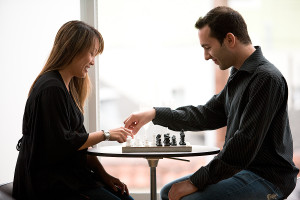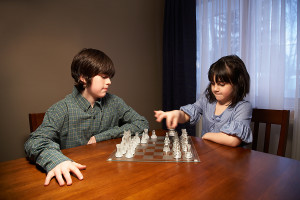According to Wendi Fischer (John Hopkins, School of Education site), “Research shows, there is a strong correlation between learning to play chess and academic achievement. In 2000, a landmark study found that students who received chess instruction scored significantly higher on all measures of academic achievement, including math, spatial analysis, and non-verbal reasoning ability (Smith and Cage, 2000).”
In other words, chess activity (including playing the game) exercises the brain, and it’s not just Wendi Fischer who is talking about this.
Solving Problems in our Schools
Dr. Howard Gardner, in his 1983 book Frames of Mind: The Theory of Multiple Intelligences, discussed chess as the primary example of spatial intelligence. In private email, Dr. Gardner has acknowledged, “Skill in chess probably depends on both logical, mathematical and spatial intelligence; and since it is a competitive game, interpersonal intelligence is probably important as well.” Dr. Gardner and other Harvard professors were actively involved with the “Learn to Think Project” in Venezuela. The findings (based on a sample of the 4,266 second grade students) were nothing short of amazing: After a minimum of 4.5 months in the chess program, most students showed a significant gain in IQ. B.F. Skinner wrote, “There is no doubt that this project in its total form will be considered as one of the greatest social experiments of this century.”
And yet why should chess playing benefit only children? Adults also have brains. Just as kids and grownups need physical exercise, so also do their intellects need exercise. Chess competition can solve the problem of sloppy thinking, or at least help activate minds that have become sluggish with pointless television gazing.

Dust off that old chess set and play the royal game.
###
.
New Teaching Method in a Chess Book for Beginners
The new paperback Beat That Kid in Chess may be the first publication to systematically use the teaching method called “nearly-identical positions” (PIN).
Beat That Kid in Chess (BTKC) is for the early beginner, who knows the rules of the game but little or nothing else, who would like to win but has little idea how. How to Beat Your Dad at Chess (HBYDC) is best for the more experienced player
This is a book for the average (or below average) person who just wants a little help in winning a chess game against somebody who already knows a little bit about winning.
.



